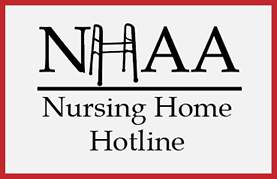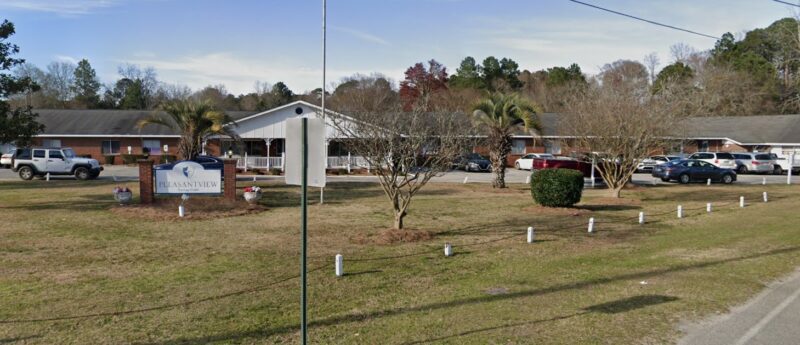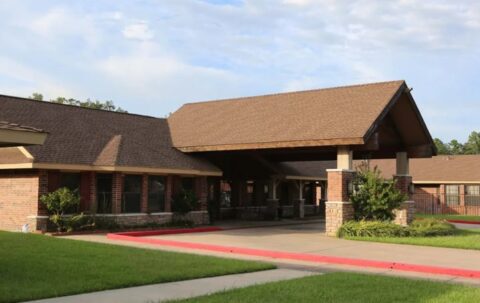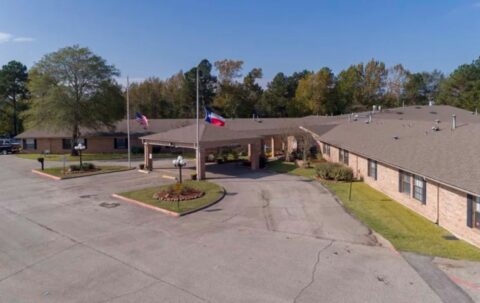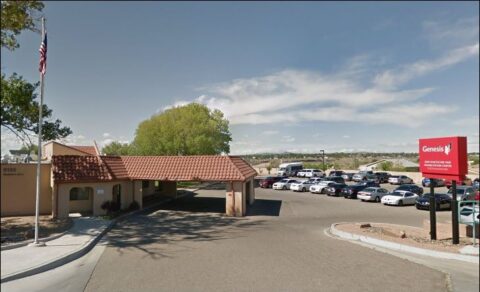State Findings:
The Department of Health & Human Services conducted an inspection of the facility. The following highlighted decencies listed below were found in a public survey.
Honor the resident’s right to a dignified existence, self-determination, communication, and to exercise his or her rights.
Based on observations, staff and resident interviews, the facility failed to promote a dignified dining
experience at meals by serving residents food and beverages on disposable Styrofoam plates, disposable Styrofoam cups, small disposable plastic cups, and disposable plastic eating utensils for three of four sampled residents (R) (#48, #76, and #82) reviewed for dignity while dining. This failure had the potential to affect all 51 residents who resided in the facility on hallways A, B, and C.
Honor the resident’s right to a safe, clean, comfortable and homelike environment, including but not limited to receiving treatment and supports for daily living safely.
Based on observations, staff interviews, and a review of the facility’s policy titled, Homelike Environment, the facility failed to ensure the secure unit was in good repair, and free from odors. Additionally, the facility failed to ensure that dressers were kept in good repair in the secure unit for four residents (R) (#2, #15, #48, and #82). This failure had the potential to affect all 51 residents who resided in the secure unit.
PASARR screening for Mental disorders or Intellectual Disabilities
Based on staff interviews, record review, and review of the facility’s policy titled, Pre-Admission Screening and Resident Review (PASRR), the facility failed to ensure one of three residents (R) (#22) reviewed for the Pre-Admission Screening and Resident Review (PASRR) process, who was admitted with a mental health diagnosis, was referred for a Level II screening. This failure had the potential to increase the risk for a resident with a mental illness diagnosis from not receiving specialized services.
Provide care and assistance to perform activities of daily living for any resident who is unable.
Based on observations, staff interviews, record review, and a review of the facility’s policy titled, Resident Hygiene-Bath and Shower Standards, the facility failed to ensure baths/showers and consistent Activities of Daily Living (ADLs) were provided to a resident who was dependent on staff for personal hygiene needs. This affected one of six residents (R) (#83) reviewed for ADLs on the secure unit. This failure had the potential to affect the quality of care by residents not receiving bathes/showers according to the facility policy.
Post nurse staffing information every day.
Based on observation, staff interviews, record review, and review of the facility’s policy titled, Clinical Staffing Standard dated August 2021 revealed, the facility failed to ensure the nurse staffing information was posted in a prominent place readily accessible to residents and visitors. This failure had the potential to affect all residents and visitors to the facility.
Ensure that the facility has sufficient staff members who possess the competencies and skills to meet the behavioral health needs of residents.
Based on observations and staff interviews, the facility failed to ensure adequate staffing to provide routine care and adequate supervision for the 51 residents on the secure unit out of a total of 99 residents in the facility.
Implement gradual dose reductions(GDR) and non-pharmacological interventions, unless contraindicated, prior to initiating or instead of continuing psychotropic medication; and PRN orders for psychotropic medications are only used when the medication is necessary and PRN use is limited.
Based on observation, interview, record review, and a review of the facility policy titled, Behavior Monitoring, the facility failed to identify target behaviors for monitoring of effectiveness of antipsychotic medication for three of five residents (R) (#22, #42 and #72) reviewed for unnecessary medications. This failure had the potential to contribute to unnecessary antipsychotic medication use for residents who used the medication to treat the behavioral symptoms of dementia.
Ensure food and drink is palatable, attractive, and at a safe and appetizing temperature.
Based on observations, staff and resident interviews, and record review the facility failed to serve food that was hot and/or well-seasoned to four of five sampled residents (R) (#48, #82, #57, and #75) reviewed for food palatability. This failure had the potential to affect all 99 residents who consumed food from the kitchen.
Provide special eating equipment and utensils for residents who need them and appropriate assistance.
Based on observations, staff interviews, and record review, the facility failed to provide an angled rocker knife and evaluate a resident’s need for other special eating utensils for one of one sampled residents (R) (#2) reviewed for assistive eating devices.
Procure food from sources approved or considered satisfactory and store, prepare, distribute and serve food in accordance with professional standards.
Based on observations, staff interviews, and a review of the facility’s policy titled, Food storage, the facility failed to cover stored food, keep scoops and cups out of stored dried foods, store meat, vegetables, nutritional supplements, and bread products in a kitchen reach-in freezer at zero degrees Fahrenheit (F) or lower, and date nutritional supplements when removed from freezer storage. This failure had the potential to affect all 99 residents who consumed food from the kitchen.
Provide at least one room set aside to use as a resident dining room and for activities, that is a good size, with good lighting, air flow and furniture.
Based on observations and staff interviews, the facility failed to provide an adequately furnished dining room for resident dining by utilizing two overbed tables and two folding tables in the dining room. This affected two of 28 residents (R) (#2 and #48) who ate their meals in the facility’s main dining room.
Make sure that the nursing home area is safe, easy to use, clean and comfortable for residents, staff and the public.
Based on observations, staff interviews, and a review of the facility’s policy titled, Mobility Aids: Conduct wheelchair Inspection, the facility failed to provide wheelchairs and geri-chairs that were functional, clean, and in good repair for 10 of 49 sampled Residents (R) (#3, #22, #42, #61, #63, #9, #27, #87, #5, and #11) who used wheelchairs or geri-chairs. This failure had the potential to affect residents’ mobility and have a negative impact on their quality of life.
Make sure there is a pest control program to prevent/deal with mice, insects, or other pests.
Based on observation, staff and resident interviews, record review, and a review of the facility’s policy titled, Pest Control, the facility failed to maintain an effective pest control program so that the facility was free of rodents. This failure had the potential for all the residents of the facility to be at risk for diseases caused by rodent infestations.
Your Experience Matters
...and we want to hear it.
NHAA is here to assist families, residents, and the community by sounding the alarm on issues like those found above. This nursing home and many others across the country are cited for abuse and neglect.
If you have or had a loved one living in this nursing home or any other nursing home where you suspect any form of abuse or neglect, contact us immediately.
We have helped many already and we can help you and your loved one as well by filing a state complaint, hiring a specialized nursing home attorney or helping you find a more suitable location for your loved one.
You can make a difference, even if your loved one has already passed away.
Please give us a call at 1-800-645-5262 or fill out our form detailing your experience.
Personal Note from NHA-Advocates
NHAA shares with all the families of loved ones who are confined to nursing homes the pain and anguish of putting them in the care of someone else. We expect our loved ones to be treated with dignity and honor in the homes we place them. We cannot emphasize enough to family members of nursing home residents; frequent visits are essential to our loved ones’ well-being and safety.
If you are struggling and upset, click here to understand your options, or contact us through our contact form or call our toll free hot line number: 1-800-645-5262.
